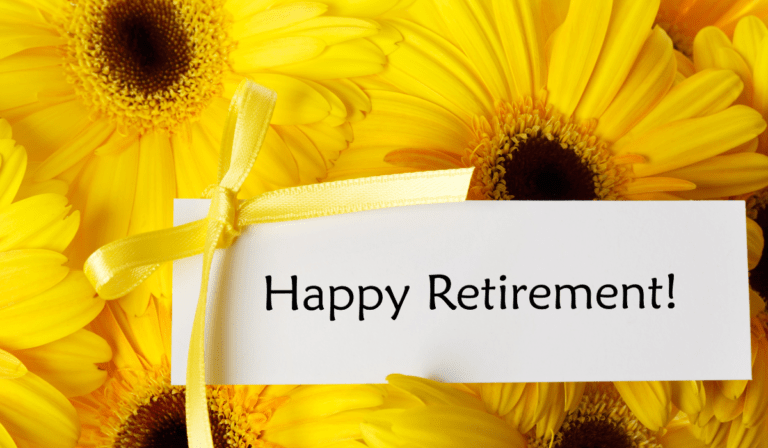Retirement Reflections: A Journey of Self-Discovery
Most people look forward to retiring, with dreams of enjoying the fruits of decades of hard work and saving. Those dreams may encompass exciting adventures like traveling the world, or simpler goals like spending more time with a spouse or grandchildren. Others may look forward to enjoying a favorite hobby like gardening, putting together jigsaw puzzles, woodworking or something similar.
But what so many older folks fail to think about is the unique opportunity given in retirement for self-discovery. As the adage says, “you learn something new every day.” In this case, the “something new” can be new things learned about yourself and how you relate to the changing world around you.
From Career to Self
Whether you’re already retired or coming up soon to retirement, there will be an important transition from your career to yourself. As you move more into the retirement years, this is the time to become comfortable with all the free time that is now yours. Many retirees struggle with this aspect of retirement; especially when they were happy with their career. Retirement requires an emotional transition as much as a practical one. It’s helpful to think of retirement as embarking on a new journey of self-discovery and personal growth; a journey where you take the helm, heading toward a more enriched version of yourself.
Finding Time For Retirement Self-reflection and Introspection
One of the best benefits of retirement is the abundance of free time. This is a time in life where the obligations of your career no longer monopolize the majority of your thoughts and actions. When the “noise” of your work obligations subsides in retirement, you now have time for quiet introspection.
Introspection is the practice of examining your own thoughts and feelings. It’s widely used in psychology, to help patients to determine the underpinnings of troubling thoughts, or problematic habits, behaviors or beliefs. But introspection needn’t be relegated to an analyst’s couch. You can use this powerful tool at home to fuel your personal growth during your retirement years. One essential for optimal introspection is having the time to spend on it. Thanks to retirement, you already have the time problem solved!
How Introspection and Retirement Can Fuel Personal Growth
You can try several ways to spend time on introspection, depending on your lifestyle and circumstances. Ideas include:
- taking long walks
- spending time in a park
- turning off devices and sitting quietly alone
- going to bed early to spend time before falling asleep
- not rushing out of bed in the morning and spending the time thinking, instead
When you actively reflect on your actions and feelings, you may discover previously disguised motivations and patterns in your life. This can help to uncover areas where you want to improve, as well as give you insights into how others may be influencing the way you think about yourself, the way you behave or the habits you engage in.
Don’t fear introspection. This isn’t about finding faults within yourself. It’s about learning more about yourself so that you can grow more into all the roles you want to nurture. For example, you can do introspection about your role as a parent and grandparent. Would you change anything in the past if you had the chance? How have your words and actions helped to shape your children or grandchildren? Have you been a positive force? Has the energy you spent on others served them and you?
These are all questions that only you can answer, and you’ll want to come up with your own questions, too.
Reflective Exercises and Tools For Personal Growth in Retirement
Self-reflection can be challenging, simply because it’s so abstract. For many, engaging in certain exercises and using tools can help to center and ground the thoughts, questions and answers. Here are some ideas to consider:
Make a Timeline
Using a spreadsheet or a simple pencil and paper, create a timeline of your life. Note the pivotal times in your life, such as moving into a new house, the birth of a child, the death of a loved one, travels, etc. Be as specific as possible without getting mired so far down into the details where you have trouble completing the timeline. When you’re finished, you may find that there are patterns in your life, such as moving every 10 years, or something else. Use this tool to discover more about what drives you and your reactions to big events in your life.
List What’s Important to You
Take time to write down a list of your values. Include things, concepts and people who matter most to you. An example would be:
- House (thing)
- Car (thing)
- Health (concept)
- Passion (concept
- Friends (people)
- Spouse (people)
When you’re done, think about how these values line up with your life. Are you spending your time on the things that matter most to you? If not, in what way could you shift your time and activities so that your highest values take precedence?
Finding Purpose in Retirement
Everything you have done or will do serves a purpose. The key is to make these things serve your purpose, not someone else or something else that you don’t care for. One of the tools for finding purpose in retirement is to reflect on what your future self will be like.
Imagine that you’re already ten years older.
Will your future self be happy with the way that you’re being right now?
Will your future self have regrets about anything?
What are they, and what can you do in the present time to help prevent those potential regrets?
How can you make the most of yourself right now, so that your future self is happy and fulfilled?
Interestingly, this exercise may help you to realize how young you are right now, and to see that you have an abundance of time left to find joy, self-growth and satisfaction during every day.








